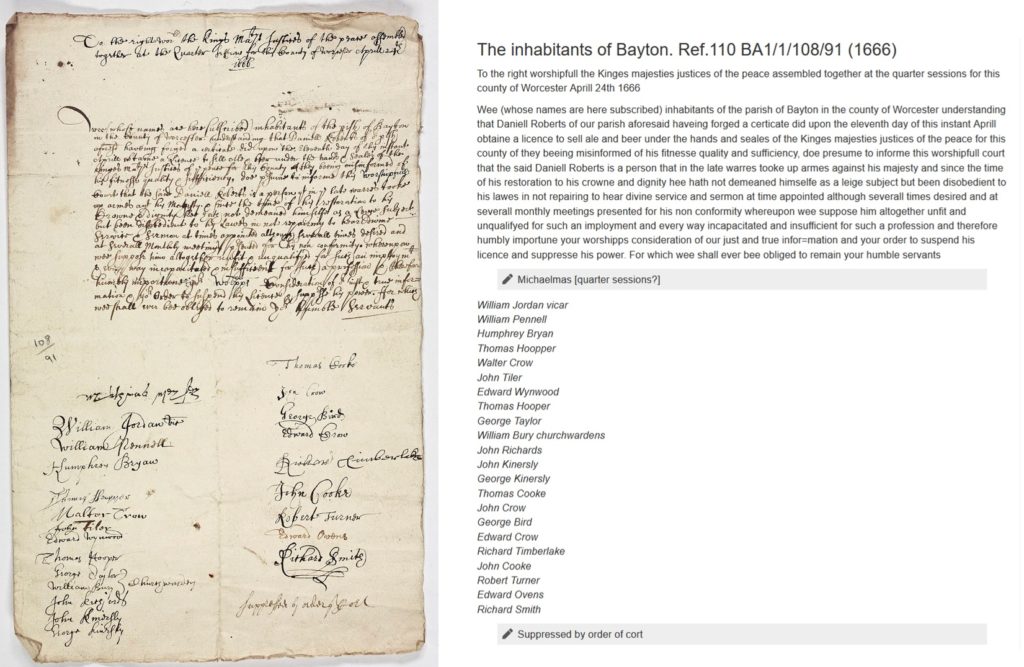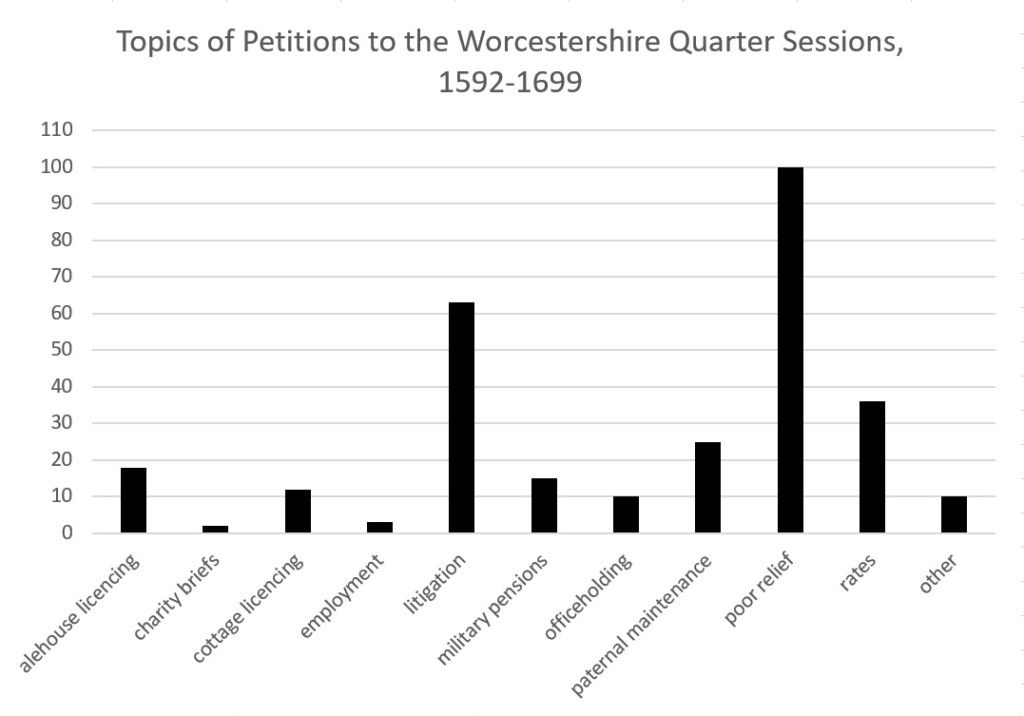Our first 572 full transcriptions of petitions from Elizabethan and Stuart England are now freely available to read and search at British History Online. One volume includes 297 requests and complaints submitted to the magistrates of Worcestershire and the second volume includes 275 sent to the magistrates of Cheshire. Although very few focus on the sort of conventional ‘political’ issues found in modern petitions, together they show a huge range of the grievances raised by ordinary people in a tumultuous historical period.
To take just one example, twenty-two inhabitants of Bayton in Worcestershire submitted a petition to the magistrates in 1666 asking them to ‘suppresse’ their neighbour, Daniel Roberts, from selling ale and beer. They complained that Roberts had ‘forged a certificate’, ‘tooke up armes against his majesty’ during the civil wars, and refused to attend church ‘to hear divine service and sermon’. Unsurprisingly, the vicar and churchwardens were among the many signatories. The petition appears to have been successful, because a clerk wrote ‘Suppressed by order of cort’ at the bottom of the page.

There were 17 other petitions relating to alehouses in the Worcestershire collection, including several supporting rather than opposing them, but these two volumes also include a vast variety of other types of petitions. Crime and punishment feature very prominently, accounting for nearly 160 of the petitions. Addressing poverty and poor relief is also a major concern, with dozens from both counties from paupers seeking parish pensions. You will also find many petitions relating to bastardy and paternal maintenance, the right to build cottages on ‘waste’ land, military pensions for veterans and war widows, exception or imposition of local taxation and officeholding, and a very miscellaneous group of other matters. If you are interested in the social, cultural or legal history of this period, there is sure to be something that catches your eye in here.

If you want to know more about petitioning in early modern England to better understand the context of these documents, you could start by reading our free ‘very short introduction’ and then move on to our ever-expanding annotated bibliography of published scholarship. Each volume also has an editorial introduction briefly reviewing who sent these petitions, the topics covered, their place in the archives, and more.
We will be publishing further guidance and advice on our Resources page, but for now you can just dive into the sources:
- Petitions to the Cheshire Quarter Sessions, ed. Sharon Howard, British History Online
- Petitions to the Worcestershire Quarter Sessions, ed. Brodie Waddell, British History Online
We would love to hear what you find! Remember that searching is currently by keyword only and spelling was very irregular in the seventeenth century, so you may need to experiment. We will eventually have a more advanced search facility.
These volumes are truely a team effort. They were edited by Sharon Howard (Cheshire) and Brodie Waddell (Worcestershire), and both were transcribed by Gavin Robinson. Preparing the texts for online publication on British History Online was completed by Jonathan Blaney and Kunika Kono of IHR Digital.
We are extremely grateful to Worcestershire Archive and Archaeology Service and Cheshire Archives and Local Studies who supported the creation of these new transcriptions. We highly encourage readers to take advantage of their extensive collections to pursue further research on the individuals and communities mentioned in the petitions, or to view the original manuscripts. We are also grateful to the Arts and Humanities Research Council and the Economic History Society for their financial support, without which these would not have been possible.
These two volumes are merely the first in a series of seven planned volumes which will include two more counties (Derbyshire and Staffordshire), one city (Westminster), the House of Lords, and the Crown. For the counties and the city, we will also be adding eighteenth-century petitions. We will announce the new volumes here as they appear.
